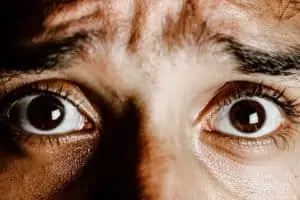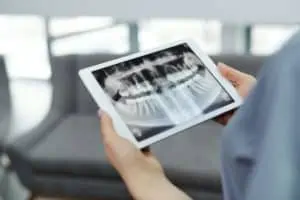General Dentistry
It’s a well-known fact that smoking can affect your lungs, heart, and other parts of your body. But did you know that smoking can also cause trouble with your oral health? In fact, smokers are at increased risk for several diseases and complications that affect the mouth, teeth, and gums. In celebration of the Great American Smokeout, which aims to help current smokers make a plan to quit, your dentist in Sparks wants to share a few ways that smoking can put your oral health at risk.
How Does Smoking Affect Oral Health?
Not only does smoking increase the likelihood of developing serious overall health problems such as certain cancers, but it can also cause damage to your oral health.
- Tooth Staining
Cigarettes contain a boatload of ingredients, chemicals, and carcinogens, which is anything that is known to cause cancer. But each cigarette also contains nicotine, the addictive ingredient, and tar in the tobacco. Both nicotine and tar can cause tooth staining. Smokers’ teeth may be noticeably yellow or can have brown spots.
- Gum Disease
Besides the negative cosmetic side effects of smoking, there are real health risks associated with smoking. One of those risks is gum disease. Gum disease is a serious infection in the gums that may display signs of red, swollen, painful gums, or gums that bleed during brushing or flossing. But that’s not all. Gum disease has also been linked to various whole-health issues including heart disease, respiratory infections, dementia, and diabetes.
- Tooth Loss
While we’re on the topic of gum disease, it’s important to note that it’s also one of the leading causes of tooth loss. Since people who smoke are more likely to get gum disease, it means they’re also more likely to experience tooth loss. One of the worst parts about gum disease is if it’s not caught early, the infection can be irreversible. This is one reason why it’s so important to see your dentist in Sparks regularly so they can check for early signs of gum disease and treat it quickly.
- Oral Cancer
Perhaps the most common word associated with smoking is cancer. Any type of cancer diagnosis can be scary, including oral cancer. According to the American Lung Association, smokers are ten times more likely to develop oral cancer than non-smokers. But it’s not just cigarettes that can increase this risk. Smokeless tobacco, cigars, and pipe tobacco all contain cancer-causing carcinogens and can increase the risk of oral cancer.
Making a plan to quit smoking and utilizing the resources available to you can help make what may now seem like the impossible, possible. If you are interested in quitting, let your dentist in Sparks help you learn how you can start improving your oral health the minute you put out that last cigarette.
Pointy canine teeth may be a good look for a vampire. But if you’re one of the many people whose canines are pointier than you’d like, we want you to know that there are various ways that your dentist in Sparks can use cosmetic dentistry techniques to reshape your teeth and revitalize your smile.
All About Canine Teeth
Canine teeth are those four teeth in the top and bottom of our mouths that are naturally pointy in shape. Some people refer to them as vampire’s teeth, and they can somewhat look like dogs’ teeth, hence the name canine. The unique shape of the canine teeth helps us eat by allowing us to tear, hold, and chew food. But if you think your canines are too long or too pointy, let’s check out a few ways your dentist in Sparks can help.
3 Ways to Change The Shape of Teeth
Cosmetic dentistry isn’t only meant for people who want to get a brilliantly white smile. In fact, it can fix a whole bunch of aesthetic concerns. Three of the best ways to fix pointy teeth through cosmetic dentistry are:
- Bonding
- Veneers
- Recontouring
Bonding
Dental bonding is the most conservative way a dentist can change a tooth’s appearance. The treatment involves applying a tooth-colored material to a tooth and sculpting it into an ideal size and shape. Bonding can also fix chipped teeth, slightly overlapped teeth, and even crooked teeth.
Veneers
Dental veneers are thin pieces of porcelain that are attached to the front surface of teeth. They can cover up discoloration, fill in gaps, and change the size or shape of teeth. The procedure requires your dentist to remove a small portion of enamel for the veneer to fit. But after that, you’re left with a new, natural look.
Recontouring
Another way your dentist in Sparks can change the shape of your teeth is through tooth recontouring. This quick and easy treatment allows your dentist to use an artistic eye to gently remove tooth enamel to alter the size or shape of a tooth. Only a few millimeters of enamel are removed so it’s a painless procedure.
Changing the look of your smile doesn’t need to be complicated or expensive. Start your smile makeover journey by talking with a dentist about your options.

Prior Dental Experiences
A study published in the National Library of Medicine found that many people who are scared of the dentist can trace their fear back to a negative experience, usually one that occurred during childhood. Now, this doesn’t necessarily mean that the dentist was bad. In fact, more research suggests that there is a correlation between the type and amount of dental treatment a child has had and the severity of their dental anxiety. For example, a child that had multiple serious treatments such as extractions is more likely to have dental fear later in life than kids who visit the dentist regularly and experience ongoing preventive care.
Learned Behavior
Even if someone personally didn’t have a negative experience in the dental chair growing up, they may still have a fear of seeing their dentist in Sparks due to learned behavior or mindset from a parent, sibling, or another close acquaintance. This is one reason why it’s so important to speak positively about seeing a dentist (or any doctor for that matter) around kids and others.
White Coat Syndrome
Occasionally, some people have a negative body reaction whenever they visit a dentist or medical doctor. This can be known as white coat syndrome. White coat syndrome can cause a spike in blood pressure whenever in a doctor’s office. An increase in blood pressure can cause someone to feel uneasy, hence the feeling of being scared of the dentist.
Personality Traits
The same National Library of Medicine study from above also examined two types of personality traits and how they may relate to dental fear. The two traits were:
- Extraversion – warm, excitement-seeking, assertive
- Neuroticism – anxious, self-conscious, showing depressive symptoms
The scientists found that those two traits may have a correlation to dental anxiety with neuroticism being more likely to experience dental fear.
Overcoming Dental Fear
We understand that fear is a very real feeling for many people. But there are some tricks you can try to help overcome dental fear such as:
- Using relaxation techniques
- Asking about the use of sedation dentistry
- Finding the right dentist that makes you feel comfortable
- Listening to music
- Talking with your dental team about your fears and communicating often
Being relaxed and comfortable when you visit your dentist in Sparks is important for many reasons. One of those reasons is that you will be more likely to keep up with appointments every six months, which can go a long way in keeping your teeth healthy and reducing the need for complex treatment.
If you’re overdue for a dental appointment, talk with us. We’re here to help you keep you relaxed and at ease, and the more we know about your fear the better we can assist you.
What we eat and drink can certainly affect our overall health. But did you know they can also affect dental health? Some beverages are beneficial for teeth while others can wreak havoc in your mouth. Tune in as your dentist in Sparks talks about which drinks you should enjoy regularly and which you should avoid or drink in moderation to protect your teeth.
Soda
This shouldn’t come as a surprise, but soda of any kind is bad for your teeth. This also includes sugar-free options. Soda is typically loaded with sugar, but that’s not the only problem. It’s also acidic and can weaken tooth enamel, making it easier for bacteria to attack teeth and create cavities. In fact, studies show that even diet soda or sugar-free options can still break down enamel thanks to the acid.
Fruit Juice & Fruit Punch
Drinking something with fruit right in the name may seem like a healthy option, but this can be deceiving. Most commercial fruit juices contain added sugars and are made from concentrate, not actual fruit juice. If you can find an option that is 100% fruit juice and doesn’t have added sugars, it’s an ok option. Fruit punch on the other hand isn’t actually juice or fruit at all. They’re mostly sugar and acidic.
Alcohol
Not all alcohol is necessarily bad for teeth if enjoyed in moderation. Early studies on beer, for example, may show a beneficial effect on teeth because of the hops. More research is needed to be sure. But other alcoholic drinks like wine are often acidic and can weaken enamel. Alcohol is also naturally drying, so it can easily dry out the mouth. A dry mouth is a haven for bacteria to thrive.
Sports Drinks
Often marketed as a great option for active people, sports drinks are high in sugar and are also acidic. As we’ve mentioned, this duo can be dangerous to teeth and increase the risk of dental problems.
What To Choose Instead
When it comes to choosing the best beverages for your family, there are some great options available that can quench your thirst and benefit your oral health.
Water
Your dentist in Sparks can’t stress the importance of drinking enough water every day. This not only helps keep your body hydrated, but it also helps wash away bacteria, neutralize acid, and promotes saliva production.
Milk
We all know that milk helps build strong bones, but it can also help build strong teeth and keep them strong. Milk contains calcium, phosphorus, and vitamin D, all of which are beneficial for teeth. Milk also contains caseins, a protein that forms a protective barrier on teeth to keep bacteria and acids away. However, because milk also contains sugar, your dentist in Sparks recommends drinking milk in one sitting and not over a period of time.
Tea
Even though drinking too much tea can stain your teeth and make you explore teeth whitening options, it does have some health benefits. Black and green tea in particular may inhibit the growth of bacteria and help keep decay away. Tea can also decrease acid production which can protect teeth even more. However, keep in mind that these studies were for unsweetened tea. Any sweetener from sugar to natural honey can encourage decay.
To help protect your teeth against decay, choose what you drink wisely. If you do indulge in beverages that aren’t so great for your smile, especially acidic ones, try to use a straw and wait at least 20 minutes after drinking to brush your teeth.

What is Sleep Apnea?
Sleep apnea is a condition that occurs when a person stops breathing while sleeping. This can happen for a few seconds or longer, and you may not even know it’s happening. Interruptions in breathing during sleep can cause oxygen levels to drop and carbon dioxide levels to rise, making sleep and rest difficult to achieve.
Know The Signs
Signs and symptoms of sleep apnea may appear during sleep as well as when you are awake. Pay attention to your sleep habits and how you feel while awake, and keep an eye out for:
During Sleep
- Snoring
- Mouth breathing
- Difficulty staying asleep
- Pauses in breathing or gasping for breath
While Awake
- Irritability
- Sleepiness
- Morning headaches
- Waking up with a dry mouth
If you notice any of the signs of sleep apnea, schedule an appointment with your dentist in Sparks.
Causes
Sleep apnea occurs when the throat muscles relax so much during sleep that they block the airway, making breathing difficult. This can happen for a number of reasons:
- Obesity
- Family history
- Nasal congestion
- Large tonsils or adenoids
Other risk factors that can make someone more prone to developing sleep apnea include high blood pressure, type 2 diabetes, Parkinson’s disease, and smoking.
How is Sleep Apnea Diagnosed?
The first step in getting a proper diagnosis is to see your dentist in Sparks for an evaluation. The next step can vary depending on your symptoms and exam. The following step may include tests such as a sleep study, measurement of oxygen levels overnight, or an electrocardiogram. Your dentist may also examine the size of the tonsils.
Treating Sleep Apnea
Treatment varies from patient to patient and can range from:
- Medications such as nasal spray or allergy medicine
- Tonsil or adenoid removal
- CPAP machine
- Oral appliance
Sleep apnea can be scary, but treatment is available. If you’re experiencing symptoms of sleep apnea or you share a bedroom with someone who has symptoms, consider talking with your dentist. Come prepared with symptoms and a log of when you notice them as well as any family history of sleep apnea.
Even if you see your dentist in Sparks twice a year for exams and cleanings, it’s crucial that you also take excellent care of your teeth at home between visits. Following a good oral hygiene routine of brushing and flossing can also help your oral health and overall health. So how often should you brush your teeth, and what happens if you don’t?
Two Times a Day is What They Say
The American Dental Association and your dentist in Sparks recommend brushing your teeth twice a day, once in the morning and once before you go to bed. Brushing two times every day is essential for a few reasons.
Think about all of the things you eat and drink throughout the day. Everything from your morning cup of coffee to your spaghetti dinner is exposed to your teeth. If you don’t brush away the food particles, bacteria, and plaque, your teeth are at increased risk for problems. Additionally, the longer food and bacteria linger around, for example, while you sleep, the more issues it can cause.
What If You Skip Brushing?
Even though you should do everything you can to brush your teeth twice a day, things happen, and there are times when you may miss a brushing. If this happens occasionally, it’s probably not that big of a deal. But if you skip brushings regularly, it can put your oral health at risk for:
- Cavities
- Bad breath
- Gum disease
But that’s not all. There’s also a connection between oral health and overall health, and other parts of your body can become affected by poor dental hygiene.
Oral Health & Whole-Body Health
Many studies have linked poor oral health with several whole-body health concerns, which makes brushing your teeth regularly even more important. Some of the conditions that have been tied to oral health are:
- Endocarditis
- Cardiovascular disease
- Pneumonia
- Dementia
- Diabetes
- Cancer
- Kidney disease
If you haven’t been practicing a good oral health care routine at home or haven’t been to your dentist in Sparks in the last six months, we encourage you to schedule an appointment today.
The Right Way To Brush Your Teeth
Brushing your teeth seems like a pretty simple thing to do, but there is a right way to make sure you’re thoroughly cleaning your teeth and not causing damage in the process.
- Don’t scrub, use gentle circles
- Use a soft-bristled toothbrush
- Hold the brush at a 45-degree angle to clean the gumline
- Brush each area of every tooth, including the front, back, and chewing surfaces
- Proper brushing should take two minutes
- Don’t forget the floss
Preventive dentistry like brushing and flossing and seeing your dentist every six months is the best way to protect your oral and overall health from problems. These steps can also keep larger, more expensive dental issues from popping up. Don’t forget that your dentist is here to help, so don’t hesitate to ask any questions you may have about how to best take care of your smile.

1. Never Miss a Brushing
Whether you’re on vacation or your kids are simply staying up later or sleeping in longer, schedules can quickly get messed up, but it’s still important to make sure the entire family is still brushing their teeth twice a day. It’s crucial to maintain a proper oral hygiene routine. Everyone should brush their teeth for two minutes every day and floss once a day no matter how chaotic schedules may be.
2. Limit Sugary Treats
Even though your dentist in Sparks always recommends enjoying sweet snacks and sugary drinks in moderation, it can be especially hard to follow this guidance during the hot summer months. Sugar is everywhere and is sometimes hidden in the sneakiest places. Make sure to read the nutrition labels on food, drinks, and even condiments to reduce the amount of sugar your family consumes. When in doubt, water is always the best beverage.
3. Protect Lips From The Sun
You probably already lather sunscreen on your skin, but don’t forget about your lips. Lips can also get a sunburn, so it’s important to protect them with a layer of lip balm with SPF-15 or higher. Over time, sunburn on the lips, or anywhere else on the body, can cause several problems, including skin cancer.
4. Watch Out For Swimmer’s Calculus
While it may be hard to believe, swimming pools may cause tooth damage. Pool water should have a very specific pH level — typically between 7.2 and 7.8. If the pH drops too low, it becomes acidic. Acidic water can have effects on the whole body, including burning eyes, skin irritation, and tooth enamel erosion. If your family loves hanging out at the pool all summer long, keep an eye out for swimmer’s calculus. Swimmer’s calculus usually shows itself as brown spotting on the teeth. Swimmer’s calculus is nearly impossible to remove at home, so if you notice signs, call your dentist in Sparks for help.
5. Schedule a Dental Appointment
Summertime is a great time to schedule your family’s dental appointments, but make sure to call and schedule early as these appointments are very popular and will book up quickly. While you’re at it, try to book the next dental appointment with your dentist in Sparks in six months. Regular dental care can help prevent problems and make any necessary treatment much easier.
Everyone should enjoy their summer break, but don’t let dental care take a backseat during this time. Make sure your family is brushing their teeth twice a day no matter what, limiting sugary snacks, and protecting their skin.

Safety First!
Dental x-rays are incredibly safe for both kids and adults. Thanks to advancements in technology, many dentists now offer digital x-rays instead of traditional film x-rays. These digital x-rays not only reduce the amount of radiation exposure by 90%, but they also allow for faster appointments, clearer pictures, and more accurate diagnoses.
How Often Should I Get Dental X-Rays?
We know that we say this a lot but every patient is different, so how often you get dental x-rays will depend on your specific oral health history, current oral health, and individual needs. Please know that your dentist in Sparks will only take x-rays when necessary in order to help diagnose and monitor health. Now, keep in mind that kids may get dental x-rays more often than adults simply because their bodies are changing quickly, they have a lot of growing to do, and decay is more common in kids.
Why Are X-Rays Still Necessary If I Don’t Have Cavities?
X-rays are great at showing areas of decay early when cavities are super small and hard to detect without x-ray images. However, x-rays can show your dentist in Sparks a lot more than just cavities. X-rays can clearly identify any potential concerns with the eruption of adult teeth, see the health of the jaw bone, aid in planning for orthodontics or dental implants, and identify many oral health conditions.
Types of Dental X-Rays
Your dentist may take a variety of different types of dental x-rays at your appointments as each one allows them to see different things.
- Bitewing – Bitewing x-rays take photos of small sections of the mouth and are able to capture photos of multiple teeth in one take. These x-rays can help find decay and cavities.
- Panoramic – Panoramic x-rays show the entire mouth, including all teeth and the jawbone. The images from panoramic x-rays will show your dentist the health of your jaw bone and many other things.
- Occlusal – Occlusal x-rays show the arch of teeth and will help evaluate your bite including an underbite or overbite.
Dental x-rays are an invaluable tool to help monitor your oral health over time and are key to catching potential problems early. After all, prevention and early intervention are key to protecting teeth so your smile can stay healthy.
Of course, if you have additional questions about the safety of dental x-rays, don’t hesitate to contact your dentist in Sparks.

What to Expect
Deciding to get a dental implant is an important decision to make, so it’s important to know what to expect before your procedure. Dental implant treatment is a surgical procedure that can be completed in one day under either general or local anesthesia. Your dentist in Sparks will prep the area, which may include extracting a damaged tooth or performing a bone graft if your jaw needs more support. After that, the process includes:
- Placing the implant into the jaw bone
- Allowing the bone to fuse to the implant (this can take a few months)
- Placing an abutment for the crown to sit on
- Finishing up with an artificial tooth that’s custom-crafted to match your ideal smile
Does it Hurt?
Any type of surgery can be scary, especially when we’re talking about placing a metal post into the jaw bone. However, thanks to advancements in dental technology, many patients don’t experience any pain during the actual treatment and some may only have minor discomfort after the procedure. Mild pain can occur at the placement location as well as in the face and jaw. The good news is that patients often say this temporary pain is well worth getting their smile back.
How Long Does The Pain Last?
While it can depend on the case, most patients can feel some level of discomfort for about 10-14 days. There may also be some swelling, but the pain is often well controlled with antibiotics, following post-op instructions, and perhaps painkillers. If pain lasts longer than 14 days, patients should schedule an appointment with their dentist in Sparks to make sure everything is healing properly.
What You Can do To Reduce Pain
Besides following your dentist’s instructions, there are things you can do to help promote healing and relieve pain quickly.
- Gently rinse with warm saltwater
- Avoid crunchy and hot foods
- Continue to brush and floss your teeth, taking care to brush gently near the implant site
- Use a cold compress to help reduce swelling
You don’t have to live with missing teeth. There are many options to replace your natural teeth, including dental implants or perhaps dentures. Talk to your dentist in Sparks about the best way to replace missing teeth so you can make the right choice for yourself.

Inflammation
The main connection between aging and oral health is inflammation. Inflammation occurs as the body’s response to infection or injury and is very common in those who have gum disease. Gum disease often occurs from poor oral hygiene, among other things, and can be damaging to both oral health and overall health. In fact, research shows that those with gum disease are at increased risk of heart disease and dementia, among other whole-body problems.
When gum disease is present, so is inflammation. What makes it worse is that advanced gum disease can’t be reversed by your dentist in Sparks. This means that your body is constantly exposed to chronic inflammation. Chronic inflammation can weaken your immune system and make it harder for the body to fight off disease, including age-related diseases.
Appearance
Keeping your teeth healthy and strong can also help reduce the appearance of aging. While having white teeth is one sign of a younger appearance, there are many other ways your oral health can help keep you looking young.
Teeth and the entire jaw essentially form your facial appearance. This is one reason why it’s so important to keep your natural teeth. Without them, your face can take on a baggy, older look. To help keep your teeth for a lifetime, make sure you brush and floss every day and see your dentist in Sparks at least every six months.
How Can Dentistry Help?
Even if your smile is showing your age more than you want it to, there are numerous ways dentistry can help. Depending on your specific concerns, you may be a candidate for certain types of cosmetic dentistry or restorative dentistry, such as:
- Smile Whitening – Professional whitening can help transform the color of your teeth and make you look younger.
- Dental Veneers – Veneers can cover up any imperfections that you don’t like and create a youthful smile.
- Dental Implants – Missing teeth can often be replaced with dental implants. These permanent replacements help in many ways, including continuing to stimulate the jaw bone so it doesn’t take on a sagging appearance.
As we’ve mentioned before, we don’t really have a huge dental secret to help during the aging process. Truly, taking care of your teeth by brushing and flossing regularly and seeing your dentist in Sparks at least twice a year are easy ways to protect your oral health and keep you feeling and looking young.




